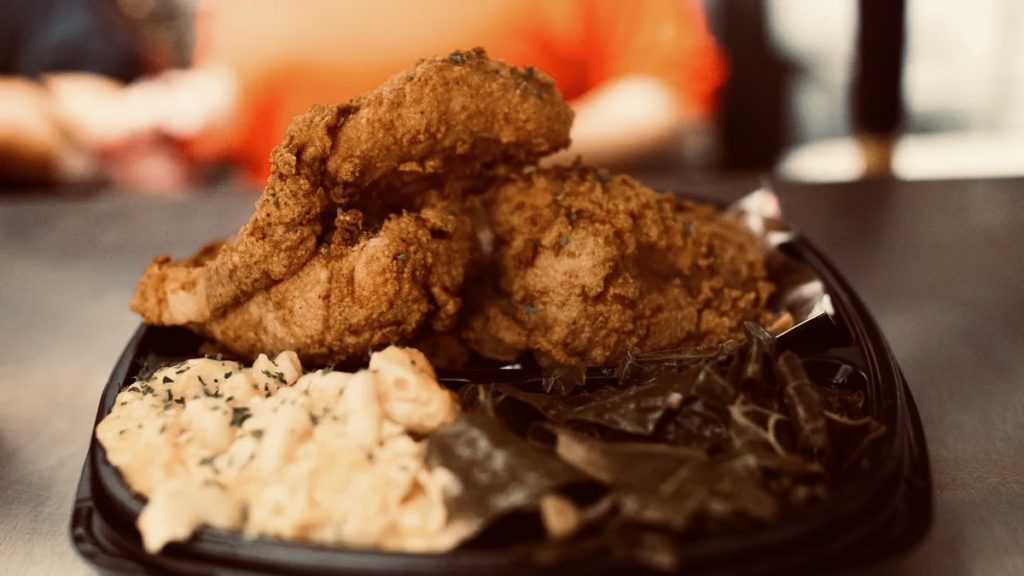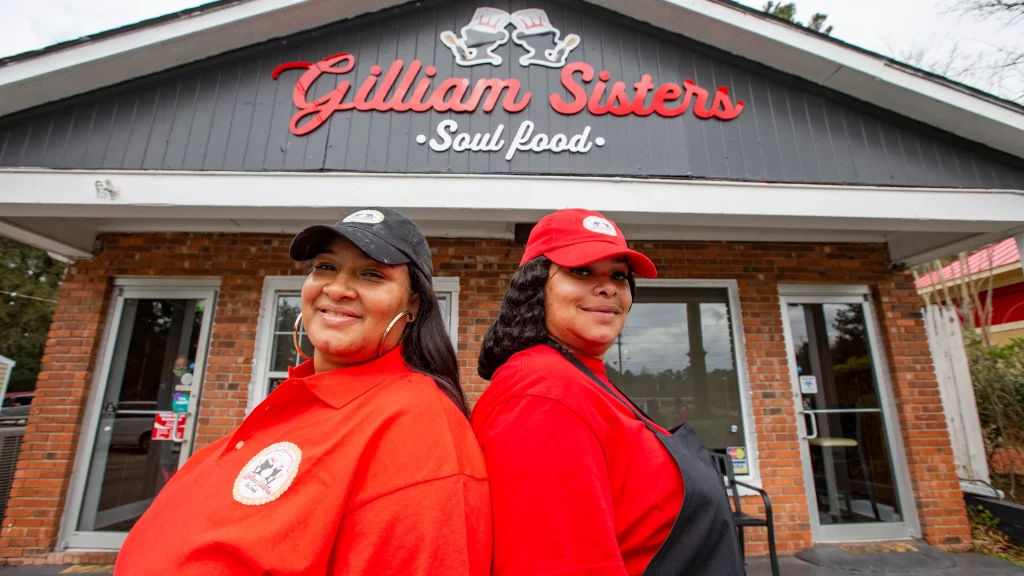Culture | February 25th, 2022
The Gilliam Sisters & The History of Soul Food
By: Khedgen Willis

Collard greens, candied yams, and baked macaroni and cheese are a few of many signature dishes within soul food. Over the years, Black Americans have passed down recipes from generation to generation creating a cuisine rich in tradition and history. With the time and care that goes into preparing these dishes, why is it so important to the Black community?
Gilliam Sisters is a soul food restaurant owned by sisters Yashica and Yolanda Gilliam, in Tallahassee, Fla. Opening its doors on January 28, 2021, The vision began with Yashica Gilliam, who has always enjoyed cooking alongside her sister and convinced her to open a restaurant together.

Photo courtesy Tallahassee Democrat
When the pair first moved to Florida from Asheville, N.C., in 2012, these were not the plans they initially had in mind. After they arrived, they opened up their restaurant Sassy’s Place and continued to expand as time went on, but they encountered roadblocks. From the roof caving inwards to damaged equipment, the sisters faced the downsides that many first-time restaurant owners experience and wanted to venture into another avenue. “My sister and I were preparing for a food truck, I didn’t really want to go into brick-and-mortar anymore because of the obstacles faced with this [previous] business,” Yashica says.
While Sassy’s Place has been closed down due to infrastructure issues, this was not the end of the entrepreneurial legacy in their family. Their grandfather Rev. Ervin Omega Gilliam Sr. and his younger brother Venice Gilliam opened the Gilliam Brothers Barber Shop in the Frenchtown district of Tallahassee in the 1950s. At the time Gilliam Sr. was among one of the first African American men to open a business in that area. As he served the surrounding community, this was the beginning of the Gilliam Legacy. Now, his granddaughters continue this legacy in their own way.
Even though the sisters planned to go forth with business in a different direction, Yashica began to follow steps that she says were “ordered by God.” She filed for an LLC and began to prepare for another storefront, then they received a call from a friend about a restaurant closing down near a local high school. When looking at the building Yashica felt a sense of belonging and contacted the owner shortly after. That same building is now their new location.
“Soul food is food that is cooked with love; food that comes from the heart of a person; food that is designed to gather the people”
With the slogan “food that touches the soul,” Gilliam Sisters flaunts a culturally-decadent menu: fried chicken platters, salmon platters, oxtails and a host of sides. The sisters believe in perfecting their craft in order to leave customers satisfied. “Soul food is food that is cooked with love; food that comes from the heart of a person; food that is designed to gather the people,” Yashica says.
The origins of soul food derive from slavery. During the 17th century, enslaved African Americans consumed food given to them by plantation owners while other foods had to be foraged or collected. This high-calorie diet consisted of a peck of cornmeal and morsels of pork, which would make cornbread, ribs, chitterlings and many other meals. As time passed, this style of cooking became more prominent in the south. The term “soul food” was coined in the 1960s during the Black liberation era and started to become aligned with the Black identity.
“I think soul food is important to our community because of its origins. I learned soul food started in slavery when our ancestors were given the bad parts of an animal to eat. Our ancestors decided to make those scraps and make them better and turned them into amazing dishes, like chitterlings,” Alexis Peele, a fourth-year health science scholar from West Palm Beach, Fla., says.
“Soul food is not only about just feeding your stomach, but also feeding the soul”
Jamia Wideman, a third-year biology scholar from Orlando believes that soul food is one of the few things the Black community has been able to pass on. “While we were enslaved, they stripped us of so much of our culture, soul food is something we can say is truly ours,” she says.
Yashica recalls God placing the importance of fellowship on her heart. “We have come to a place in time where we are in the age of information and technology, where everyone is always busy on their phones and we never have enough time to gather. This is a place where you slow down. Soul food is not only about just feeding your stomach, but also feeding the soul.”
Wideman also understands the cultural significance of gathering together. “In most cultures, I think eating is one of the main types of fellowship, but for Black people specifically, soul food restaurants serve as a safe space, living in a place that was never meant to include you it is hard to feel at home, but these restaurants are made for us.”
Most of all, soul food restaurants provide spaces for the Black community to express themselves in a unique way. “When you walk into this establishment, this is a place you come and sit. This is a place where you come and be patient,” Yashica says.
Expanding their brand still remains to be a priority for the Gilliam Sisters, and even during a pandemic, the sisters continue to thrive and serve their community one plate at a time. For them, they are preserving the tradition and culture of our ancestors.






